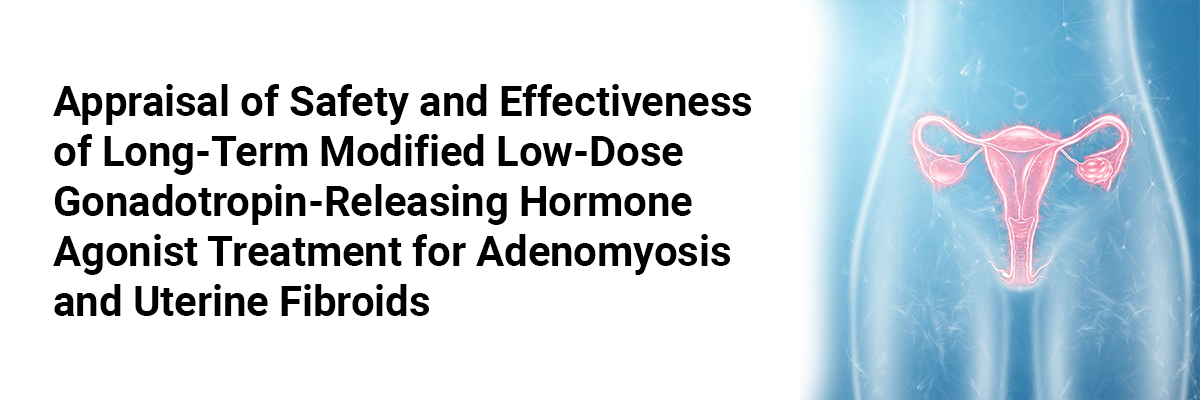
Appraisal of Safety and Effectiveness of Long-Term Modified Low-Dose Gonadotropin-Releasing Hormone Agonist Treatment for Adenomyosis and Uterine Fibroids
A study conducted by Kashiwabara et al analysed the effectiveness and safety of long-term, adjusted low-dose gonadotropin-releasing hormone agonist (GnRH agonist) drawback therapy, specifically using nafarelin acetate, for treating patients with uterine fibroids and/or adenomyosis experiencing menstrual symptoms.
The current single-center, retrospective, observational study comprised of 118 patients who underwent nafarelin acetate therapy for at least 7 months from 2010 to 2020. Key metrics assessed included blood hemoglobin levels, maximum fibroid diameter, uterine area, blood estradiol levels, daily nafarelin dosage, and bone density in the lumbar spine and femoral neck.
The results of the study demonstrated:
- The median treatment duration was 28 months, during which menstruation ceased for all patients.
- Hemoglobin levels remarkably improved, increasing from 8.6 to 13.2 g/dL in patients with fibroids and from 8.8 to 13.3 g/dL in those with adenomyosis after 12 months.
- While the treatment did not significantly reduce the size of fibroids or adenomyosis, no increases in size were observed.
- The nafarelin acetate dosage was adjusted from an initial 400 μg/day to 130 μg/day at 12 months, with only 25% of patients achieving estradiol levels below 30 pg/mL.
- Bone density changes were minimal, with decreases of -1.23% and -1.12% in the lumbar spine and femoral neck, respectively, for fibroid patients, and -1.06% and -0.14% for adenomyosis patients, which were lower than previously reported rates.
To summarize, GnRH agonist drawback therapy is a safe and effective long-term conservative treatment for uterine fibroids and adenomyosis, with minimal adverse events and acceptable management of menstrual symptoms.
Source: Kashiwabara S, Yabe S, Samejima K, Narita T, Itaya Y, Era S, Matsunaga S, Nagai T, Kikuchi A, Takai Y. A study on the efficacy and safety of long-term adjusted low-dose gonadotropin-releasing hormone agonist therapy for uterine fibroids and adenomyosis. J Obstet Gynaecol Res. 2024 Dec;50(12):2319-2326. doi: 10.1111/jog.16128. Epub 2024 Oct 27. PMID: 39462178.















Please login to comment on this article